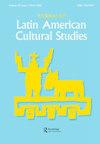A Little Bit of Magic: Nitza Villapol, the Cuban Diet, and the Socialist State, 1959–1983
IF 0.3
4区 社会学
Q4 CULTURAL STUDIES
引用次数: 0
Abstract
This paper examines Nitza Villapol’s cookbooks, cooking show, and magazine columns as windows into how the political and economic policies of the revolutionary government affected the daily lives of average Cubans. By providing recipes and educational content about cooking and nutrition, Villapol played a crucial role as a mediator between state and citizenry. In the process, she taught generations of Cuban audiences how to reconcile their lived realities with the ideological imperatives of revolutionary citizenship, which included upholding nationalist ideals by combatting imperialism through an ethos of creativity and thriftiness in the kitchen. Comparative analysis of the 1960 and 1980 editions of Cocina al minuto illustrates the consequences that austerity and dependence on the Soviet bloc had on the options available to Cuban consumers, in terms of both goods and foodstuffs into the late 1970s, a period remembered for its relative abundance. Nitza Villapol helped Cuban women to navigate these consequences, offering solutions to the shortcomings of state economic policies and transmitting state values with regard to how home cooks should understand and experience those shortcomings.《一点魔力:尼扎·维拉波尔,古巴议会和社会主义国家,1959-1983
本文检视Nitza Villapol的烹饪书、烹饪节目和杂志专栏,借此了解革命政府的政治和经济政策如何影响普通古巴人的日常生活。通过提供食谱和有关烹饪和营养的教育内容,维拉波尔在国家和公民之间发挥了重要的调解人作用。在这个过程中,她教会了几代古巴观众如何调和他们的生活现实与革命公民的意识形态要求,其中包括通过在厨房里创造和节俭的精神来对抗帝国主义,从而坚持民族主义理想。对1960年版和1980年版《古巴经济》的比较分析表明,紧缩政策和对苏联集团的依赖对古巴消费者在商品和食品方面的选择产生了影响,直到20世纪70年代末,这一时期的商品和食品相对丰富。尼扎·维拉波尔(Nitza Villapol)帮助古巴妇女应对这些后果,为国家经济政策的缺点提供解决方案,并就家庭厨师应该如何理解和体验这些缺点传递国家价值观。
本文章由计算机程序翻译,如有差异,请以英文原文为准。
求助全文
约1分钟内获得全文
求助全文

 求助内容:
求助内容: 应助结果提醒方式:
应助结果提醒方式:


